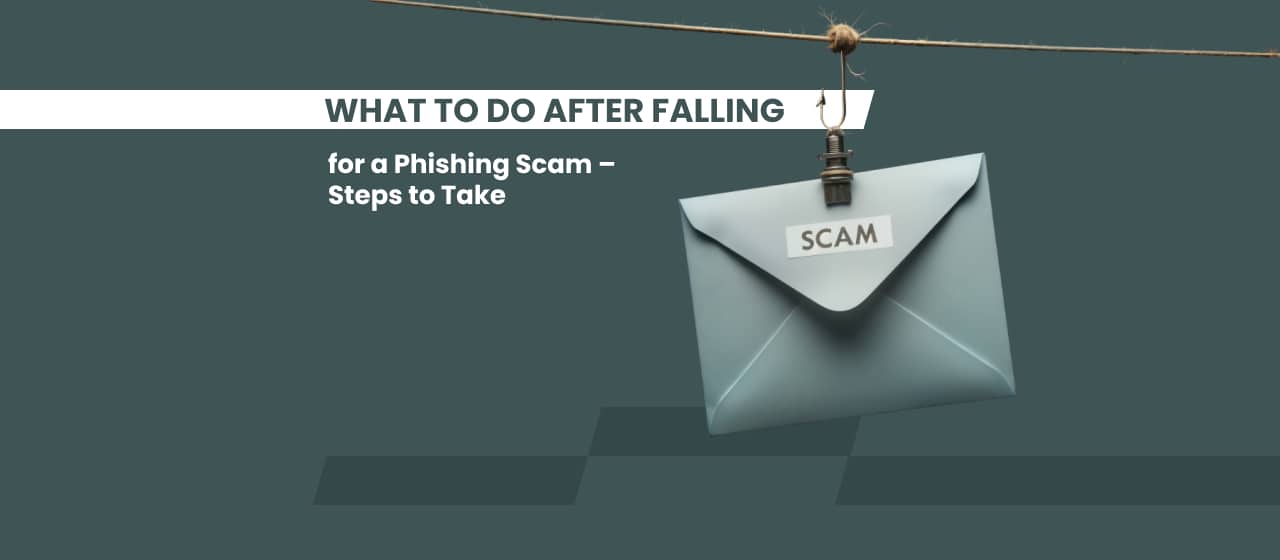When Bitcoin first hit the market in 2009, very few took it seriously as a form of currency. Fast forward to 2025, and one Bitcoin is valued at nearly $112,000. This value, the ability to transfer funds discreetly, and a lack of trust in federal banks have led to increased popularity. And like any trend on the internet, scammers have found a way to capitalize. So far, Chainanalysis confirmed $9.9 billion lost to crypto scams in 2024. They project this total may surpass $12 billion as data continues to be reviewed. Keep reading to learn more about Bitcoin scams and the ways you can protect your cryptocurrency.
What are Bitcoin Scams?
The term “Bitcoin scams” can be broken up into two main sub-categories. The first is scams that utilize Bitcoins’ popularity and rapid growth to trick people into fraudulent investment opportunities. The second is adapted versions of classic scams that utilize Bitcoin as the demanded form of currency.
Because Bitcoin transfers are difficult to track, it has become a favorite for criminals looking to operate anonymously. Furthermore, the currency is decentralized and not regulated by government agencies. Combine this with the rapid boom and people who don’t want to miss out, and you have the perfect flurry for a scammer.
The Most Common Types of Bitcoin Scams
Any scam targeting money could potentially turn into a Bitcoin scam. Using cryptocurrency has become a favorite for cybercriminals. The following are Bitcoin scams that are reported to our experts most frequently.
- Investment Scams. Scammers will pitch investment opportunities that seem too good to be true — and that’s because they are. These scams promise unrealistic ROIs similar to get-rich-quick schemes. Perpetrators often go as far as creating fake, yet convincing, investment websites and wallets that show fraudulent returns.
- Impersonation and Phishing Scams. You might not buy into a crypto offer from a random internet user. But what if it came from the verified Twitter account of the former President of the United States? This very thing happened in 2020, and scammers often borrow the credibility of public figures to pedal their schemes.
- Criminals looking to extract funds from their victims tend to favor transfer methods that are hard to track. As a result, Bitcoin is often the currency of choice in blackmail and sextortion schemes.
- Romance Scams. These criminals also love the anonymity and difficult tracking of crypto exchanges. Romance scammers will use excuses to ask for money such as travel fees or saving for the couple’s future home. Sugar daddy scammers also use bitcoin, typically asking for money from the victim to “prove their loyalty”.
- Giveaway Scams. These schemes usually involve some form of impersonation as well. Scammers will pose as trusted entities or wealthy individuals and post a listing for a free Bitcoin giveaway. However, the link to claim your prize is infested with malware, or you need to pay a “transfer fee”.
Red Flags of a Bitcoin Scam
Many people are still new to the cryptocurrency scene. Cybercriminals exploit this lack of familiarity to their advantage. It’s important to be aware of the common indications that an investment opportunity is too good to be true. Here is what our analysts suggest you look out for to spot a bitcoin scammer.
- Unsolicited Investment Pitches. How often do you reach out to strangers online to provide financial advice? You likely don’t do this at all, so it should raise concern when someone else does this to you. You should question the intentions of a random piece of investment advice.
- Unrealistic Opportunities. We would all love to get rich with minimal effort. If these money-making hacks truly existed, there would be a lot more people living lavish lifestyles. In reality, the only ones getting rich in these scenarios are the scammers who are proposing these fraudulent schemes.
- Limited-Time Offers. The believability of these schemes decreases the longer you think about them. Scammers understand this, too. That’s why they often pitch them as an opportunity that you need to cash in on right now. A sense of urgency or exclusivity can drive targets to make hasty decisions that can cost them everything.
- Suspicious Links. Bitcoin scams typically include links to the fake exchange website or wallet that will be used. These copycat sites can be extremely convincing, down to the formatting and branding of the page. It’s best to avoid clicking links sent to you and only use the verified websites of reputable exchange services.
What to Do if You Fall Victim to a Bitcoin Scam
Being victimized online in any way is scary, and Bitcoin scams are no exception. However, it’s critical for your recovery that you act calmly and quickly. Our experts suggest you take the following course of action.
- Don’t comply any further. You shouldn’t divulge any further personal information or funds to the scammer. However, blocking or ignoring them is typically ineffective and can lead to unforeseen ramifications. Because of this, it’s best to use delay tactics while you get help.
- Collect evidence of the crime. You should document evidence such as the scammer’s account, any messages they’ve sent you, and timestamps of the interaction. Store this data on a secure and separate device. This will help you report the crime and support any legal action against the scammer.
- Secure your online presence. Take time to secure any accounts the scammer may have compromised. Update your passwords and enable two-factor authentication (2FA) for an additional layer of protection. You should also run a reputable malware scan if you’ve opened any attachments they sent you.
- Report to the proper authorities. You should notify the exchange platform, your financial institution, and law enforcement. Start with your local police to rule out the possibility of a local attack. If the crime expands past their jurisdiction, report it to national agencies. In the United States, you should notify the Federal Trade Commision (FTC) and the FBI’s Internet Crime Complaint Center (IC3).
Can You Recover Funds Lost to a Bitcoin Scam?
Yes, it is possible to recover funds lost to a Bitcoin scam. However, cryptocurrency is one of the hardest forms of money transfer to track. Its decentralization and pseudonymity make it difficult to trace Bitcoin wallets. The ability to retrieve stolen Bitcoin is heavily reliant on the speed at which you report the transaction.
Working with professional cyber investigators can increase your chances of tracking stolen Bitcoin. These experts have access to Bitcoin wallet forensics software that can trace Bitcoin transactions back to the scammer. You can learn more by reading our article on recovering stolen funds.
Can You Take Legal Action Against a Bitcoin Scammer?
Yes, it is possible to pursue legal penalties for the damages sustained in a Bitcoin scam. Extortion and investment fraud are criminal acts, and it’s important that perpetrators are held accountable. However, it can be difficult to pursue legal action if you don’t know the identity of the scammer. This is another reason why victims can benefit from the services of expert investigators who can unmask anonymous cybercriminals.
Real-Word Case: Massachusetts Seniors Targeted in Bitcoin ATM Scam
In late 2024, scammers convinced three seniors from Beverly, Massachusetts to deposit cash to fraudulent wallets at Bitcoin ATMs. It’s not discussed what reason the scammers gave, but the three victims became suspicious and reported the transaction quickly.
This allowed Beverly Police to obtain search warrants for the Bitcoin ATMs that the money had been deposited at. They seized the stolen funds before they were emptied and worked with the District Attorney’s office to reimburse the victims.
“It was absolutely critical that these scams were reported within 24 hours of the time residents were victimized,” said Beverly Police Chief John LeLacheur. “Once that cash has been emptied out, there is little police or prosecutors can do to get the cash returned.”
Beverly Police recovered over $21,000 for the three victims. Additionally, they seized another $150,000 that they are still working to return. This case serves as a reminder of just how crucial it is to report Bitcoin scams in a timely manner.
How to Avoid Bitcoin Scams
What you’ve read so far may deter you from investing in Bitcoin. However, it can be a legitimate investment opportunity. It’s possible to safely buy and exchange Bitcoin without additional risk past the ones expected with any investment. Our experts advise you take the following precautions to avoid Bitcoin Scams.
- Verify crypto exchange websites. Don’t use URLs sent to you from random accounts online – or even verified public figures. If you decide to get into Bitcoin, do it through verified and reputable exchange services. Conduct research before deciding to invest in cryptocurrency.
- Avoid get-rich-quick schemes. If it sounds too good to be true, it likely is. Don’t let the desire to cash in cloud your judgement. These opportunities are virtually always Bitcoin scams disguised as legitimate investments.
- Don’t take investment advice from strangers. Like we said earlier, it’s not common for strangers to randomly decide to give out free financial advice. Instead, they are hoping someone will take the bait for their scam.
- Stay informed on Bitcoin scam trends. Cybercriminals are constantly evolving their tactics to target the wallets of unsuspecting users. It’s important that you are diligent in your effort to keep up with this ever-expanding facet of fraud.
And if you ever fall victim to a Bitcoin scam, know that you can count on Cyber Investigation Inc. Time is of the essence, and you don’t have to be left scrambling alone. You can contact us any time of day to connect with one of our specialists.







